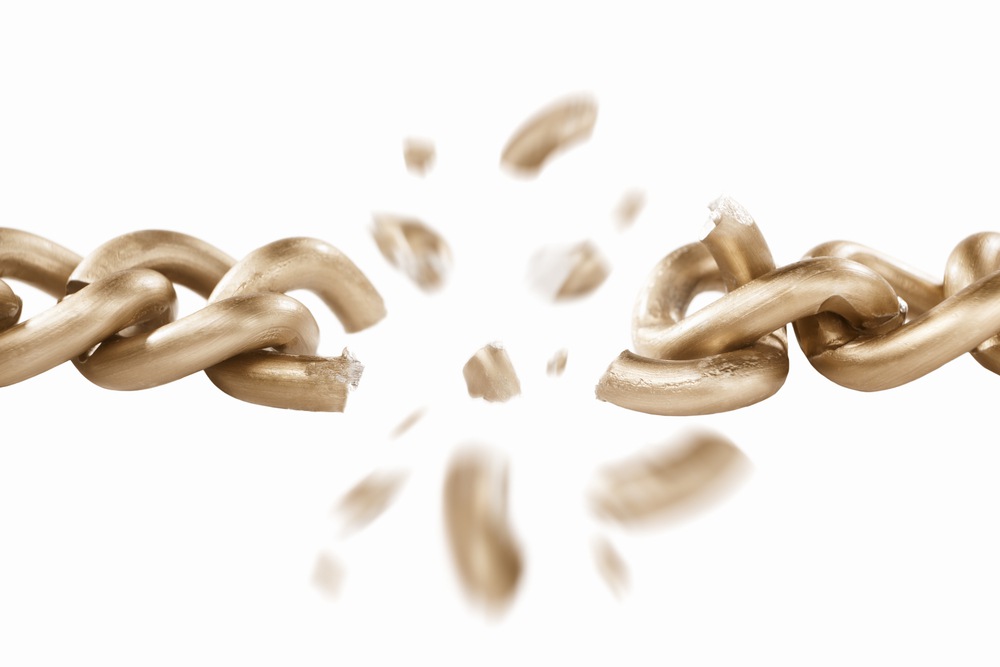If you’ve been building links for any amount of time you’ve probably realized that link building is a time-consuming, tedious, and often frustrating. Finding high-quality, relevant links is getting harder. Not only has Google tightened the rules on link building, websites are increasingly aware of who they are linking out to. Oftentimes, when a site owner finds a linking opportunity they are so excited they jump at the chance to take it. But sometimes that link isn’t really worth it, even if it’s the only linking opportunity you’ve found in a while.
Here are three times that link isn’t worth it:
1. When the link is never going to be found by an actual human being.
In my experience, when you look at links solely as entry points into your website (and not as a way to get your website to the top of the SERPs) you actually end up building/earning better links. Why? Because you are looking for sites that actually get the kind of traffic you would want coming to your own website! While having a nice long list of new links each month might look good to a manager or client, if only a handful of those links are from sites that actually ever see the light of day and have a steady stream of visitors, most of those links are pretty useless. The Internet has billions upon billions of pages, and more are being built every day. Most of them are buried so deep no human visitor will ever actually find them. What good is a link from that page other than to try to boost your SEO? And that is exactly the kind of link that Google is fighting against.
2. When the link is coming from a spam site or blog network.
I can’t believe that these sites still exist and that people still want links from them, but plenty of website owners were smacked hard by Penguin for having too many links that come from spam sites or blog networks. Just the other day I was reading a post by Eric Ward on Search Engine Land where he talked about a site that hired a local SEO firm to do their link building, and then the SEO firm (secretly) outsourced the link building work to a third-party company. That third-party company built all the wrong links and the client website was the one stuck with the penalty. I implore site owners: avoid blog networks and spam websites at all costs! I don’t care if they are willing to give you 1000 links for free, it’s not worth it! Most spam sites and blog networks are fairly identifiable because there is no central focus–they talk about, write about, and link to anything and everything.
And if you call yourself an SEO professional and build links that ultimately penalize your clients’ sites, it’s time you found a new profession. As SEO providers, we have a responsibility to our clients to do everything we can to help them succeed and nothing to hurt them. The rules of the game have changed, whether you think for better or not, and it’s part of your job to stay informed so your clients’ websites don’t suffer.

3. When the link is from a site that has nothing to do with your website/industry.
Let’s say you sell medical transcription software–chances are you are trying to connect with the IT department in a hospital, medical administrators, larger private practices, and so forth. If that is the audience you are trying to reach what good is a link from a site about puppy training? It might be a popular and trusted website but it’s not exactly hitting the heart of your target audience. Instead, you should be focused on finding sites that deal with medical technology, hospital administration, managing doctor-patient relationships, and so forth because that’s where your potential customers are. Yes, they might also be on that puppy training website but chances are they aren’t thinking about how much they need your software if they are trying to teach their dog how to roll over.
The best links not only send traffic to your website, but they send the right kind traffic to your website. While a link from an unrelated website might not be the worst kind of link you can build (provided it’s a high-quality website), it’s still not the kind of link you should be focused on earning.
A few weeks ago Matt Cutts came out and said that the SERPs would NOT be a better place without backlinks:
“It turns out backlinks, even though there’s some noise and certainly a lot of spam, for the most part are still a really, really big win in terms of quality for search results.”
Obviously the Penguin updates and changes to the Webmaster Guidelines are how Google is attempting to cut back the effect that the noise and spam and junk has on the SERPs. But can you imagine what the Internet would look like if all links were discounted? For the time being links are still very much a part of SEO, but it’s so important that site owners make sure they are only building (or having an SEO firm build) the right kind of links that are worth more than just another line in your link profile.
Image Credits
Featured Image: Thinglass via Shutterstock
Image #1: OtnaYdur via Shutterstock





![[SEO, PPC & Attribution] Unlocking The Power Of Offline Marketing In A Digital World](https://www.searchenginejournal.com/wp-content/uploads/2025/03/sidebar1x-534.png)